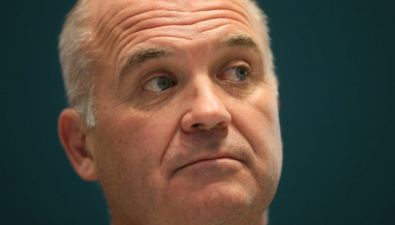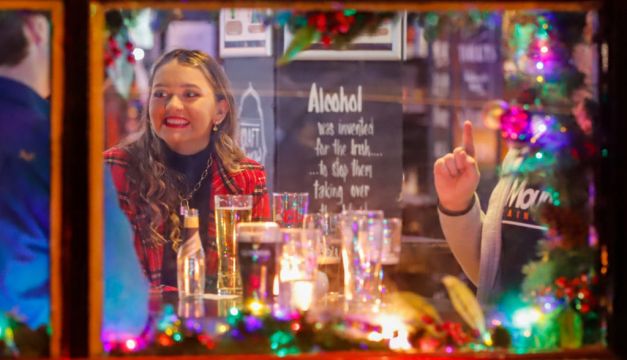Young people have been urged to make an “exceptional sacrifice” and rethink their Christmas plans following a spike in cases in the cohort.
Chief medical officer Dr Tony Holohan said one in four people aged 16 to 34 who received PCR tests last week received a positive result.
He said this was one of the highest rates since the start of the pandemic, and anyone who is unvaccinated or yet to receive their booster represents a “high risk” to those they come into contact with.
“This high level of disease in young people represents a high risk to those they come into contact with who have yet to be vaccinated or receive their booster,” he said on Monday evening.
“Therefore, if you have not yet received your booster you are best to avoid unnecessary contact with people outside your household.”
He added: “Christmas week is an important time for many of us.
“However, it is also a time that presents unique opportunities for Covid to spread because of the possible extent of inter-household and inter-generational mixing.
“Each of us can take actions this week to protect ourselves and our loved ones, even if this means rethinking plans for the Christmas period, especially if you are not yet boosted or vaccinated.
“As difficult as it may seem, limiting as much as possible your Christmas to small numbers and very close family will protect them.
“This is an exceptional sacrifice to ask after the very difficult year all of us have had, so please remember that it may be the decision that protects yourself or a loved one from the severe impacts of Covid-19.”
No ‘secret’ restrictions
Earlier, Tánaiste Leo Varadkar said there was no “secret plan” to introduce more Covid-19 restrictions before the new year.
Reports at the weekend suggested ministers had been briefed on the possibility of the need for stricter curbs, but these were later dismissed as “speculative” by the chief medical officer.
Mr Varadkar said he was “confident” that new measures that came into effect on Monday, including an 8pm closure of hospitality, would be enough to combat the coming Omicron wave.
But he said nothing could be ruled out, particularly if the situation in hospitals deteriorates. “Of course, we can’t rule out being able to ease restrictions earlier or having to tighten them if there was a sudden deterioration or major deterioration in terms of the picture in our hospitals, for example.”
He added: “[There is] no secret plan for any additional restrictions before Christmas, for the new year or even in January.
“But of course the caveat is that it’s not possible to rule anything out in this pandemic.”
Mr Varadkar said the next few weeks will see very high case numbers that “will scare people”.
He added: “But I don’t think they will translate into the levels of hospitalisation or ICU admissions or deaths that maybe we fear. But that won’t be clear reading for another couple of weeks.”
Asked if he was confident the new measures will work, he said: “Yeah, I’m confident. I’m not certain, but I am confident.”
Earlier the chief medical officer said the State may still be able to avoid more severe restrictions.
It has taken less than two weeks for #Omicron to become the dominant strain of #COVID19 in Ireland, revealing just how transmissible this variant is.
— Dr Tony Holohan (@CMOIreland) December 19, 2021
Dr Holohan said on Monday that the National Public Health Emergency Team (Nphet) would continue to monitor the spread of the Omicron variant over Christmas and did not rule out the need for tougher measures to protect the health system.
Omicron is now the dominant Covid-19 strain in Ireland, health officials have said.
The Health Protection Surveillance Centre has estimated that approximately 52 per cent of reported cases are now due to the Omicron variant.
From Monday, restaurants and bars, excluding takeaways and delivery services, must close at 8pm.
The Government has also said there should be no indoor events after 8pm and attendance at indoor and outdoor events earlier in the day will be restricted.

Dr Holohan said he hoped the measures would be enough to curb a sharp rise in infections, but warned people to “buy into not just the letter but the spirit of that guidance”.
Monday saw a further 4,799 confirmed cases of Covid-19, the Department of Health said.
As of 8am on Monday, there were 467 patients in hospital with the disease, an increase of 31 on the previous day, with 104 of those in ICU, down three.







